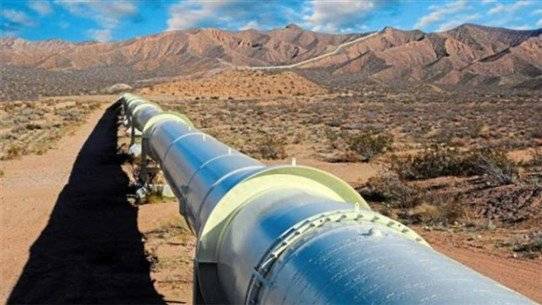Lebanon is sinking deeper into darkness day by day due to continued widespread power outages, with the exception of some official premises and a few lucky areas, while the caretaker government shows no signs of action. Instead, it occasionally preoccupies itself with renewing the fuel import contract from Iraq for energy generation or seeking alternative sources for fuel imports, sometimes from Algeria and other times from Kuwait. This distraction overlooks the underlying reasons for the delay in benefiting from gas imports from Egypt and electricity from Jordan, despite the fact that the Ministry of Energy has inked agreements with both the Egyptian and Jordanian governments.
The electrical darkness engulfing Lebanon adds to the political darkness that could potentially be resolved by reviving the caretaker government, which has been put on a hot burner if President Michel Aoun does not reneg on the promise he made to Hezbollah's leadership to facilitate its revival, which is supposed to translate into tangible steps once Prime Minister Najib Mikati returns from New York by the end of this week.
Political sources accompanying the discussions leading to the Ministry of Energy's agreement with its Egyptian counterpart to import gas from Egypt fear that this signing may remain merely ink on paper, and that the alternative might be to extend the contracts for generator owners to control the Lebanese people's necks, given the state's treatment of them as the legitimate heir to the Electricity of Lebanon institution, which has been silent in failing to issue statements to inform the public about the continued darkness that envelops the majority of Lebanese who can no longer afford their monthly bills to generator owners.
These political sources accuse some within the government, specifically the Ministry of Energy, of colluding with generator owners and providing them official protection under the pretext that they cover the government's failure to provide electricity for the Lebanese. They question why, since the shortfall in this regard lies with Minister Walid Fayad, Mikati is inclined to grant him a "special pardon" by exempting him from ministers subject to replacement if the government's revival proceeds, despite the fact that their relationship is fraught with issues.
The same sources warn against attributing the failure to Egypt in an attempt to escape forward and divert attention from the extortion by generator owners of the majority of Lebanese people by increasing the monthly subscription fees, now in dollars, under the pretext of rising fuel prices due to the devaluation of the national currency. They state to "Asharq Al-Awsat" that it is unacceptable to shift the blame onto the Egyptian government, which has not hesitated to agree to provide Egyptian gas to Lebanon.
They point out that the Egyptian government may have to clarify the facts to the Lebanese at the right time to put things straight, especially since some are attempting to absolve themselves of responsibility by hurling unfounded accusations to justify the "collusion" between influential figures controlling the generator mafia and those in key positions within the Ministry of Energy, which has resigned from its duties by refusing to inform the public of available data, even as a means of clearing its conscience.
The political sources reveal that the delay by the Ministry of Energy, and thus by the government, in benefiting from gas imports from Egypt to compensate for the unprecedented shortfall in power generation in recent weeks is due to three reasons. The first is the lack of an agreement with the World Bank to secure the financial loan necessary for covering the costs associated with importing gas from Egypt and electricity from Jordan. The second is Washington's refusal to provide an official approval confirming that the gas imports would not be subject to sanctions under the Caesar Act.
The third reason, according to the sources, stems from the government's hesitation, via the Ministry of Energy, in preparing the terms of reference that include the necessary reforms in the electricity sector as a mandatory step for the World Bank's approval for disbursing the required financial loan, which will later be put to a vote by the permanent member countries and institutions of the World Bank.
The sources question why, since the U.S. ambassador in Beirut, Dorothy Shea, continuously affirms that Washington is not against importing gas from Egypt and electricity from Jordan for humanitarian reasons and it would not be included under the Caesar Act, Congress has not taken the initiative to send a message in this regard to Egypt and Jordan, as this is needed to prevent future inclusion under this law with a change in the U.S. administration.
They affirm that Egypt is not responsible for any delays in benefiting from the importation of Egyptian gas and electricity from Jordan, stating that the problem is confined to the U.S. administration, which still hesitates to direct a message to both Egypt and Jordan, affirming that the imports for energy generation are exempt from the Caesar Act for humanitarian reasons, as acknowledged by the U.S. ambassador.
Moreover, the problem, according to the sources, also relates to the Lebanese government's reluctance to prepare a terms of reference to obtain a World Bank loan to finance these two operations, which stipulates the establishment of a regulatory authority for the electricity sector, an increase in tariffs, and the cessation of infringements on networks and lines, as well as their rehabilitation to stop wastage caused by faults affecting them.
Lebanon remains caught in a vicious cycle regarding this issue. Previously, during Saad Hariri's government before the last under President Aoun, the political team aligned with the president rejected an offer presented by German Chancellor Angela Merkel when she visited with the Chairman of Siemens, to assist Lebanon in rehabilitating its electricity sector without incurring any financial costs. The same situation repeated itself during the CEDRE conference, which was sponsored directly by France, where Hariri played a prominent role; Aoun and his political team were behind not translating its provisions into action, including those related to rehabilitating the electricity sector, which received no response from them as they refused to appoint the regulatory authority to manage it, despite the fact that its rehabilitation was included as a key item on the agenda of repeat visits by the French envoy Pierre Dukan, who was tasked with monitoring and implementing its provisions.




